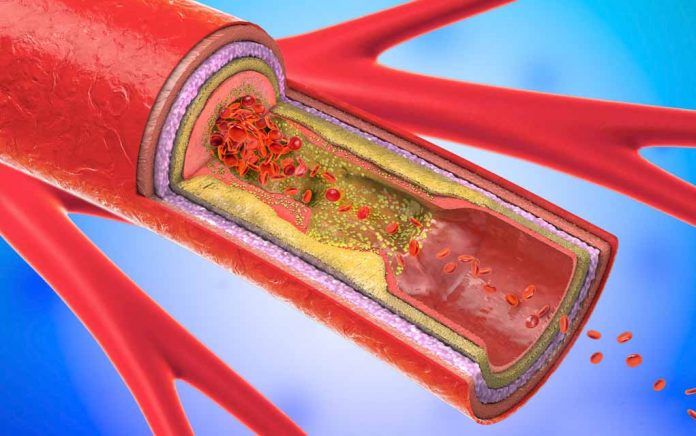
Coronary artery disease kills more people in the United States than any other condition. Since it can develop slowly, the symptoms can be easy to overlook. Learn the signs that your arteries are clogged, and what to do when you find them, to reduce your chances of becoming a statistic.
Clogged arteries can cause chest pain, fatigue, shortness of breath, back pain, and other circulatory problems. You can reduce your risks of clogged arteries, and possibly even reverse some damage, by not smoking and adopting a healthy diet and exercise routine. Some cases may require medical intervention. Keep reading to find out what you need to know.
Recognize These 5 Signs Your Arteries are Clogged? Here’s What to Do.
What Is Coronary Artery Disease?
Years of poor diet, tobacco use, and sedentary lifestyle can cause plaques to form along the insides of blood vessels. Poor lifestyle choices can also damage the lining of the vessels, creating thickened tissue and areas that are more susceptible to clots. When arteries become clogged, blood flow throughout the body becomes compromised, putting the person at risk for a heart attack or stroke.
Chest Pain
Angina occurs when clogged arteries put strain on the heart, causing burning or squeezing chest pain that can mimic a heart attack. Angina pain is usually worse after physical exertion, and it usually diminishes after a few minutes with rest or medication. Angina that doesn’t resolve in a timely manner may indicate an actual heart attack.
Fatigue
Reduced blood flow can cause debilitating fatigue. This is because the body isn’t getting all the oxygen it needs, and the lungs and heart have to work harder to keep oxygen circulated. People with coronary heart disease may spend more time resting, but without added benefit. They may also experience intermittent dizzy spells.
Shortness of Breath
Reduced oxygen levels can also lead to shortness of breath. Sufferers of coronary artery disease might as well be running marathons when trying to complete everyday tasks, as winded as it may leave them. Shortness of breath can also be a sign of blood clots in the lung, a medical emergency, so this symptoms isn’t not one to ignore.
Back Pain
Reduced blood flow can cause muscles to ache. It can also cause disks in the spine to degenerate. Both of these can lead to chronic back pain. Clogged lumbar arteries are far more common than most people realize. In fact, about 10 percent of Americans have already begun to form blockages in lumbar arteries by the time they’re 20. Chronic lower back pain can have numerous causes, but if you’re at risk for clogged arteries, you should consider coronary artery disease a possible cause.
Other Circulatory Problems
Clogged arteries can lead to reduced circulation in the extremities. Some people can develop pain and numbness in their hands and feet as a result. In men, this can also cause erectile dysfunction.
What You Can Do
Depending on how far progressed your illness is, you may be able to improve your condition with some lifestyle changes. Studies have shown quitting smoking, along with improved diet and exercise, can actually reverse some of the damage done to your arteries. Reducing stress levels and controlling blood pressure and blood sugar levels can also help.
When the damage is extensive, medical intervention might be necessary. Cholesterol reducing medications, blood thinners, beta blockers and even bypass surgery may be necessary to get the problem under control. Talk to your doctor about your options.
Clogged arteries are a common problem, but it doesn’t always have to end in a heart attack or stroke. Know the signs and take them seriously. It could save your life.
~Here’s to Your Healthy Ascension!
Copyright 2019, AscendHealthy.com













